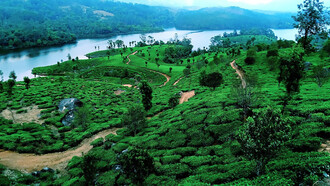Essaouira, with its ancient history and cultural richness as well as its spiritual dimension, is considered a unique model of the sublime values of openness and coexistence between Muslims, Jews, and Christians.
Thanks to its values of openness, tolerance, and peace, which are the foundation on which the ancient city is based, Essaouira has become a fortified fortress against all attempts calling for division, severance from these principles, and isolation into oneself. Throughout centuries of history, the city is an example of peace and tolerance.
It is a unique place in the field of freedom and the spread of noble human values, where the values of unity are rooted in their multiplicity and diversity. The city makes the Kingdom an unprecedented exception at the global level.
In order to preserve and advance its multiple identity, Morocco restored several places of worship belonging to the Jewish community at the national level, the most recent of which was the “Slat Lkahal” in Essaouira. The city of Essaouira hosts the complex, the Simon Attia Synagogue, “Bayt Eddakira” the House of Memory, the Centre for Studies Haim Zaffrani’s research on Jewish-Islamic relations, and the Abraham Zagory Studies and Research Center for Moroccan Hebrew Law.
This initiative falls within the framework of the wise and bright vision of His Majesty King Mohamed VI regarding the restoration of the status of Jewish religious places, the advancement of Jewish heritage, and the preservation of Jewish memory in the Kingdom.
Jewish history for coexistence in Morocco
Morocco hosts the Moroccan Jewish Museum in the city of Casablanca, the first of its kind in the Arab world. Starting from March 2015, it witnessed operations to restore about 167 Jewish cemeteries, as well as historical, cultural, and popular sites in the centre of the old city of several cities. In addition, Morocco aims to promote and preserve the tolerant and moderate Islamic character, based on the Maliki doctrine and the Ash’arite doctrine, especially by restoring ancient mosques and building new ones.
As a space where peace and tranquility are widespread, Morocco has been promoting this path, adopting an arsenal of measures aimed at encouraging harmony, dialogue, and exchange between religions, cultures, and civilisations, as well as engaging in all initiatives related to establishing peace throughout the world, thus becoming a model to be emulated at the international level.
The founding president of the Essaouira Mogador Association, advisor to His Majesty, Mr. André Azoulay, was keen to remind in many intellectual meetings that the spirit of universalism, tolerance and coexistence is concretely embodied in the city of Essaouira. It is a policy, which derives its origins from the multi-millennium history of Morocco and from the inherited values of Moroccans that were carried out from the cultural diversity and coexistence.
Morocco’s civilisation and the spirit of openness
The advisor of His Majesty, Mr Azoulay stressed that Morocco was home to many civilizations (the Phoenicians, the Carthaginians, the Berbers, the Jews, the Romans, and the Muslim Arabs), which left a positive impact and enabled the Kingdom to live in wealth and prosperity. The necessity of introducing this heritage and working to highlight it and pass it on to the rising generations is great.
Mr. Abdullah Ouzitane, a professor at the University of Bordeaux (France), said that Essaouira is replete with a valuable socio-cultural and architectural heritage, as well as 2,500 years of history, which has left a distinctive impact that still bears witness to the richness and depth of its history. The smooth relationship between Islam and Judaism is a testament to this, highlighting that Mogador city of Essaouira is considered an authentic space for “universal expression.”
According to him, the values of peace that pervade it derive their foundations from a unique and ancient history of multiple identities. The city is classified on the list of cultural heritage and humanity. Morocco adopts the spirit of openness to the outside world, rejects monolithic thought, and devotes a culture of difference and diversity within the framework of mutual respect between all spectrums.
As stated by Mr Ouzitane, the manifestations of the attachment of Moroccans who embrace the Jewish religion and their attachment to this heritage is their keenness to commemorate Hiloula (a religious season in which members of the Jewish community from all parts of the world come together). The celebration of Hiloula, which has a religious and cultural nature, has become a very ancient ritual that occupies an important place in the lives of Moroccans Jews.
The Kingdom of Morocco has more than 650 shrines of the righteous saints of the Jewish religion, especially in Essaouira, Safi, Tetouan, Rabat, Taroudant, Ouarzazate, Tangier, Ouazzane, and Meknes, as Mr. Ouzitane noted.
Morocco, the land of the righteous
The writer Elie Azoulay, through his book Morocco, the Land of the Righteous... The History and Origin of the Righteous Jews in Morocco, presents a distinguished work on the history and origin of the Moroccan Jewish righteous, and refers to the 656 'tzadikim' (the righteous men) who were counted in Morocco. Visiting the shrines of these righteous people is an opportunity for Moroccan Jews to strengthen their ties with their motherland and to be proud of their Moroccan identity and the Kingdom’s cultural values.
He was also keen to emphasize the appreciation, respect and reverence enjoyed by a large number of righteous people, whether by Jews or Muslims, which reflects the beautiful image of openness and the sharing on this Islamic land.
In this context, more than a million Jews around the world come to Morocco to express their affiliation, similarity, and pride in their Moroccan origins, while taking care to transfer this feeling from generation to generation.
Moroccan Judaism has enhanced the Kingdom’s rich and diverse cultural, architectural, and human heritage. The cultural coexistence and dialogue between Jews and Muslims emerged in the 1960s, when Rabbi Salamon Knafo led morning prayers 'Shaharit,' where his voice mixed with the voice of the muezzin calling for prayer of Muslims, forming the sounds of peace that testify to the exceptional rapprochement between the religions of Judaism and Islam in the land of Morocco.
For more than 2,500 years of history, the doors of Essaouira remain always open, embodying a model of openness and cross-fertilisation of civilisations and a permanent space for valuing multiple collective memories.














